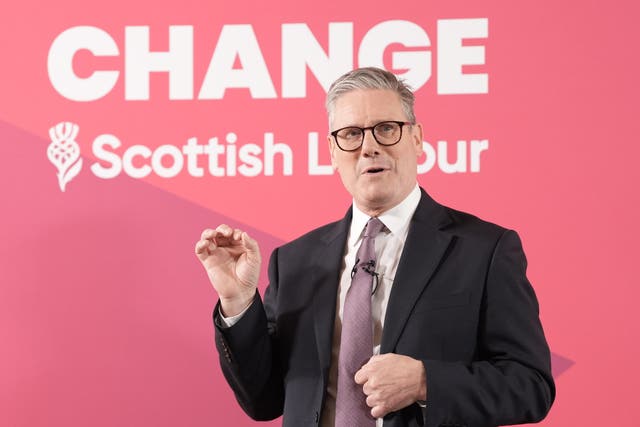What is Labour’s Great British Energy and how will it work?
Sir Keir Starmer has been setting out Labour’s energy offer.

Sir Keir Starmer is setting out Labour’s energy offer to the public as he visits Scotland.
Under the plans, Labour would set up a new publicly owned company, Great British Energy, with the aim of investing in homegrown energy sources and providing cheaper prices to consumers.
Here, the PA news agency takes a look at the plans.
– What is Labour’s energy plan?
Labour has promised to set up a new publicly owned energy company called Great British Energy if it wins the General Election.
The party has compared it to France’s EDF, or Sweden’s Vattenfall, power companies owned by their respective states, but which compete against private firms on the global market.
It is aimed at cutting the UK’s dependence on energy sources from hostile, foreign countries like Russia, boosting domestic energy supplies, and keeping bills down.
Gas prices spiked across Europe in the aftermath of Russia’s 2022 invasion of Ukraine, a leading cause of the ongoing cost-of-living crisis.

– How would GB Energy work?
The company would invest in domestic power sources, with the aim of cutting energy bills.
Early investments by Great British Energy will include wind and solar projects across the UK, as well as making Scotland a world leader in new technologies such as floating offshore wind, hydrogen and CCS, Sir Keir is pledging.
Labour plans to fund the company, which will be headquartered in Scotland, through a windfall tax on big oil and gas firms, with an initial £8.3 billion capitalisation over a parliament.

– Why Scotland?
The SNP became the dominant party in Scotland’s Westminster parliamentary constituencies in 2015, taking many traditionally Labour seats in the nation’s central belt.
Labour’s plan to base Great British Energy in Scotland is partly to provide an eye-catching policy for swing voters north of the border who are thinking of lending their support to the party.
But it is also a means of winning the trust of Scotland’s industrial workers by providing replacement jobs for the North Sea oil and gas sector, which is slowly winding down amid efforts to reach net zero.
Scottish MPs and workers in the sector have called for a “just transition” away from fossil fuels, with new industries phased in to replace it.
– What has the reaction been to the plans?
While unions have generally welcomed the plans, those with members in the oil and gas sector have called for more detail and swifter movement by Labour to ensure the just transition.
Sir Patrick Vallance, the former chief scientific adviser, has endorsed the plan in a Times article.
“If we choose to go slowly, others will provide the answers and we will ultimately end up buying the solutions rather than selling them. Getting to a clean power system fast and with appropriate technologies is an investment, not simply a cost,” he said.
Claire Coutinho, Energy and Net Zero Secretary, has accused Labour of making an unfunded pledge, and attacked the party’s moves to stop new oil and gas licences in the North Sea, claiming it would hit jobs.
The Green Party has meanwhile said the plans do not go far enough, and fail to address energy efficiency through home insulation and the electrification of home heating.

– What are the Conservatives’ energy plans?
Ms Coutinho earlier this week announced the Tories would maintain the Ofgem cap throughout the next parliament to help keep bills down.
Under the Tory proposals, price comparison services will be made easier to use and Ofgem could publish league tables showing how long energy firms take to respond to customer complaints.





